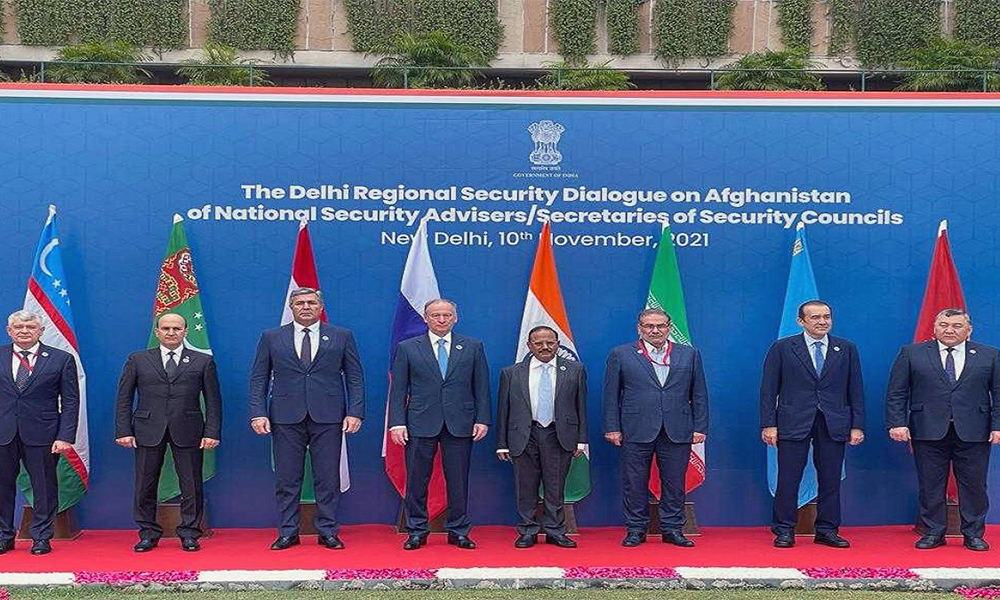NSAs meet in Delhi for talks on Afghanistan crisis

India’s NSA Ajit Doval chaired the eight-nation dialogue on the Afghanistan crisis in Delhi on Wednesday and said the recent developments in the country hold important implications for neighboring and regional countries.
In his address to his regional counterparts, Doval said: “It is a privilege for India to host this dialogue today. We have been keenly watching the developments in Afghanistan. These have important implications not only for the people of Afghanistan but also for its neighbors and the region.”
Doval also said that this is the time for close consultations amongst the participating nations and that greater cooperation and interaction is needed.
“I’m confident that our deliberations will be productive, useful, and will contribute to helping people of Afghanistan and enhance our collective security,” he said.
NSAs of Russia, Iran, Kazakhstan, Kyrgyzstan, Tajikistan, Turkmenistan and Uzbekistan are attending the high-level meeting but China and Pakistan both excused themselves.
Ali Shamkhani, Secretary of the Supreme National Security Council of Iran in turn called on the Islamic Emirate of Afghanistan (IEA) to establish an inclusive government, represented by all ethnic groups.
Turkmenistan’s Charymyrat Kakalyyevvich Amavov said that this meeting will provide the opportunity for cooperation in the region, while Uzbekistan’s Victor Makhmudov acknowledged Afghanistan is facing a crisis.
Tajikistan’s Nasrullo Rahmatjon Mahmudzoda pointed to his country’s “long border with Afghanistan” and raised concerns about cross-border drug trafficking and the humanitarian crisis.
Russia’s Nikolai Patrushev, Secretary of the Security Council of the Russian Federation called for “restoration of long-lasting peace”.
Kyrgyzstan’s Marat Mukanovich Imankulov, raised the issue of the threat of terrorism and said help needs to be extended to Afghanistan.
Kazakhstan’s Karim Massimov, Chairman of the Kazak National Security Committee raised the issue of the fast deteriorating socio-economic situation in the country.
As host, India chose not to invite the Islamic Emirate of Afghanistan (IEA), since none of the participating countries have so far officially recognized Afghanistan’s new government, although some countries, including Russia and Iran, still have an active embassy presence in the country, Indian media reports stated.
Absence of Pakistan, China
Having skipped both previous meetings because of India’s presence, Pakistan was unlikely to have attended this one, especially in light of the current state of bilateral relations, Indian media reported.
Although China had attended both previous meetings due to its own security concerns originating from Afghanistan, its absence now sends out a signal that it doesn’t want to associate with any process led by India, the Indian Express reported.
According to the report Beijing has engaged with the IEA leadership, before and after the fall of Kabul, something New Delhi has watched closely, given China’s proximity to Pakistan and potential to emerge as the IEA’s new financiers.
China’s leverage at the UN Security Council is something that the IEA will be banking on, Indian media reports stated.
